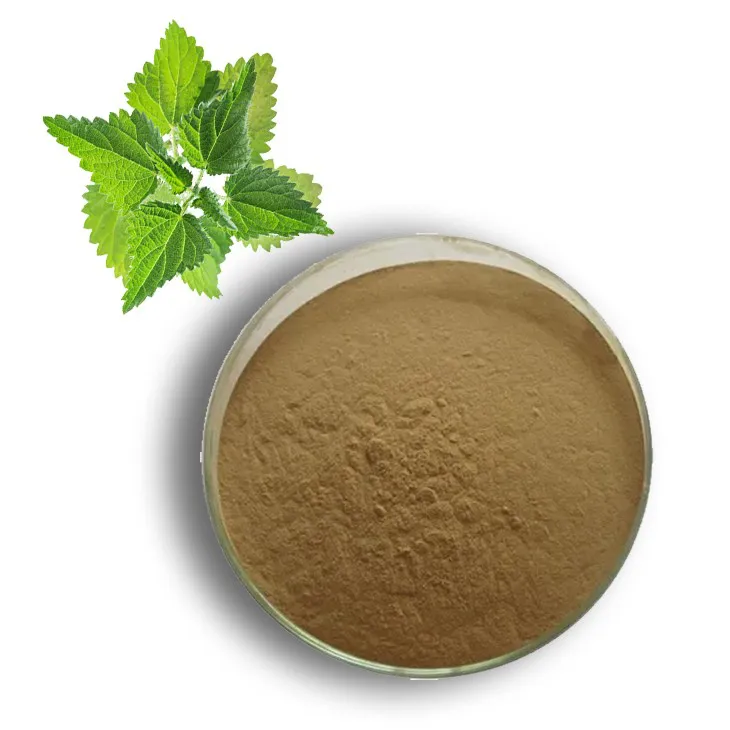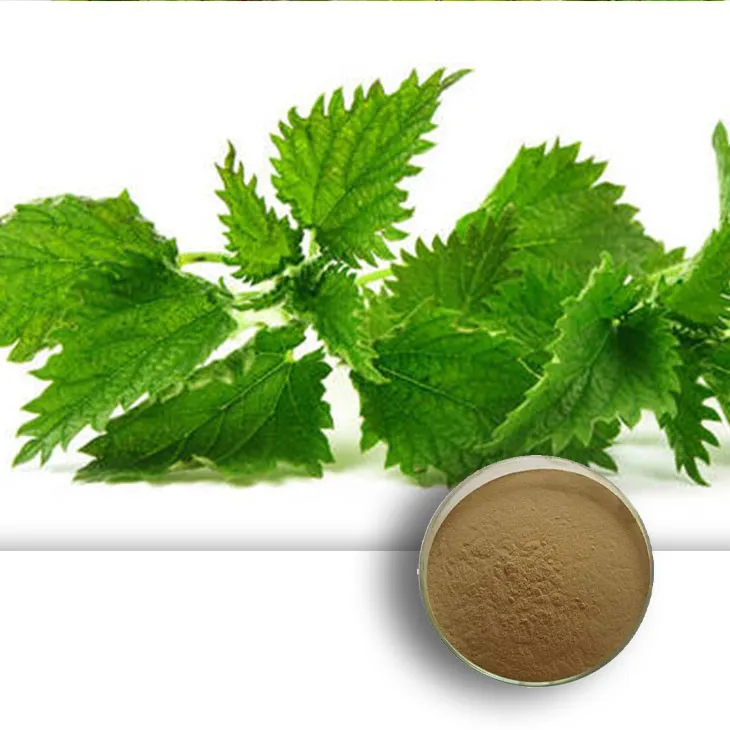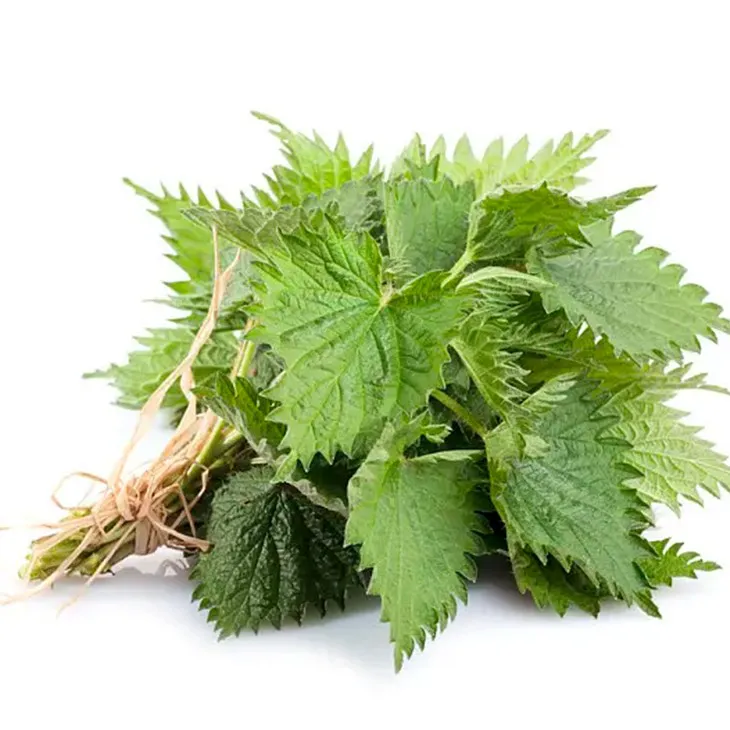- 0086-571-85302990
- sales@greenskybio.com
5 Big Reasons for Using Nettle Leaf Extract in the Food Industry.
2024-12-20

1. Rich in Essential Amino Acids
Nettle leaf extract has emerged as a significant ingredient in the food industry, and one of the prime reasons is its abundance of essential amino acids. These amino acids are the building blocks of proteins and are vital for human health. In the context of food, when Nettle leaf extract is added, it can enhance the protein quality of the products.
Essential amino acids cannot be synthesized by the human body on its own and must be obtained through diet. By incorporating Nettle leaf extract into various food items, manufacturers can offer consumers a more nutritionally complete product. For example, in dietary supplements or protein - rich snacks, the addition of nettle leaf extract can provide a natural source of these essential amino acids, which may be more appealing to health - conscious consumers compared to synthetic alternatives.

2. Diuretic Properties
Nettle leaf extract has a long - standing reputation in traditional medicine for its diuretic properties. In the food industry, this characteristic presents an interesting opportunity.
Functional foods are on the rise, and consumers are increasingly looking for products that offer additional health benefits beyond basic nutrition. By including nettle leaf extract in functional foods, such as certain types of juices or energy bars, there is a potential to pass on these diuretic benefits to the consumers. Diuretics can help in regulating the body's fluid balance, which may be beneficial for those looking to manage their weight or improve their overall well - being. However, it is important to note that any health claims related to diuretic properties need to be carefully researched and compliant with relevant regulations.

3. Texture Modification
The use of nettle leaf extract in food also extends to texture modification. It can be a valuable tool for food technologists when it comes to altering or enhancing the texture of different products.
For instance, in the case of sauces, nettle leaf extract can be used to add thickness. This not only improves the mouthfeel of the sauce but also can enhance its overall quality. In other products like gels or puddings, it may be used to adjust the firmness or smoothness. This ability to modify texture gives food manufacturers more flexibility in product development, allowing them to create unique and appealing food products. Moreover, as consumers have become more discerning about the texture of the food they consume, the use of nettle leaf extract can help meet these texture - related expectations.

4. Cost - Effective Ingredient
Nettle leaf extract is a cost - effective ingredient in the food industry. One of the main factors contributing to its cost - effectiveness is its natural abundance. Nettles are widely available in nature, and this makes the extraction process relatively inexpensive compared to other more exotic or scarce ingredients.
For food manufacturers, cost is always a significant consideration. By using nettle leaf extract, they can add value to their products without a substantial increase in production costs. This is especially important in a highly competitive market where price points can often be a determining factor for consumers. For example, in mass - produced food items like canned soups or ready - to - eat meals, the addition of nettle leaf extract can provide an extra dimension of quality without breaking the bank. Additionally, the cost - effectiveness of nettle leaf extract also makes it more accessible for smaller food businesses or start - ups that may have limited budgets.
5. Appeal to Herb - and Plant - Based Market
In recent years, there has been a significant shift in consumer preferences towards herbal and plant - based ingredients. Nettle leaf extract is well - positioned to capitalize on this trend and target this niche market.
Consumers are increasingly interested in natural and plant - derived products, believing them to be healthier and more sustainable. Food products that contain nettle leaf extract can be marketed as such, giving them a competitive edge. For example, in the growing market of vegan and vegetarian products, nettle leaf extract can be used to add unique flavors and health benefits. It can also be incorporated into natural and organic food lines, appealing to consumers who are willing to pay a premium for products that align with their values. Moreover, the use of nettle leaf extract can help food products stand out on store shelves, as it differentiates them from traditional products that do not use such plant - based ingredients.
FAQ:
What are the essential amino acids in nettle leaf extract?
There are several essential amino acids in nettle leaf extract, such as lysine, leucine, isoleucine, etc. These amino acids are necessary for various physiological functions in the human body, like building proteins, supporting muscle growth, and maintaining a healthy immune system.
How does the diuretic property of nettle leaf extract work in functional foods?
The exact mechanism by which the diuretic property of nettle leaf extract works in functional foods is complex. Generally, it may influence the body's fluid balance regulation. Compounds in the extract may affect the function of the kidneys, promoting increased urine production. However, more research is still needed to fully understand the details.
Can nettle leaf extract be used in all types of sauces for texture modification?
No, not all types. While nettle leaf extract can be used to add thickness to some sauces, it may not be suitable for all. For example, in very delicate or light - flavored sauces, the addition of nettle leaf extract may overpower the original taste. Also, the chemical composition of some sauces may interact differently with the extract, so compatibility needs to be tested on a case - by - case basis.
How cost - effective is nettle leaf extract compared to other texture - modifying ingredients?
Nettle leaf extract is relatively cost - effective compared to many synthetic or rare plant - based texture - modifying ingredients. Due to its natural abundance, the cost of obtaining nettle leaf extract is often lower. This means that food manufacturers can use it to achieve similar or better texture - modifying effects without spending as much as they would on more expensive alternatives.
How can food products target the niche market of consumers interested in herbal and plant - based ingredients using nettle leaf extract?
Food products can target this niche market in several ways. For example, they can highlight the presence of nettle leaf extract on the product label, along with information about its natural origin and potential health benefits. Product marketing can also focus on the trend towards herbal and plant - based ingredients, positioning the product as a healthy and trendy choice for consumers interested in such ingredients.
Related literature
- The Nutritional and Medicinal Value of Nettle Leaf Extract in Food"
- "Nettle Leaf Extract: A Promising Ingredient for the Food Industry"
- "Exploring the Functional Properties of Nettle Leaf Extract in Food Applications"
- ▶ Hesperidin
- ▶ citrus bioflavonoids
- ▶ plant extract
- ▶ lycopene
- ▶ Diosmin
- ▶ Grape seed extract
- ▶ Sea buckthorn Juice Powder
- ▶ Beetroot powder
- ▶ Hops Extract
- ▶ Artichoke Extract
- ▶ Reishi mushroom extract
- ▶ Astaxanthin
- ▶ Green Tea Extract
- ▶ Curcumin Extract
- ▶ Horse Chestnut Extract
- ▶ Other Problems
- ▶ Boswellia Serrata Extract
- ▶ Resveratrol Extract
- ▶ Marigold Extract
- ▶ Grape Leaf Extract
- ▶ blog3
- ▶ blog4
- ▶ blog5
-
Pure 85% Tomentil Extract.
2024-12-20
-
Curcuma Longa Extract
2024-12-20
-
Bitter Melon Extract
2024-12-20
-
Peppermint Extract Powder
2024-12-20
-
Saponin Extract
2024-12-20
-
Rose Hip Extract
2024-12-20
-
White Willow Bark Extract
2024-12-20
-
Acerola Extract
2024-12-20
-
Moringa powder
2024-12-20
-
Feverfew Extract
2024-12-20
-
Hericium erinaceus extract powder
2024-12-20





















